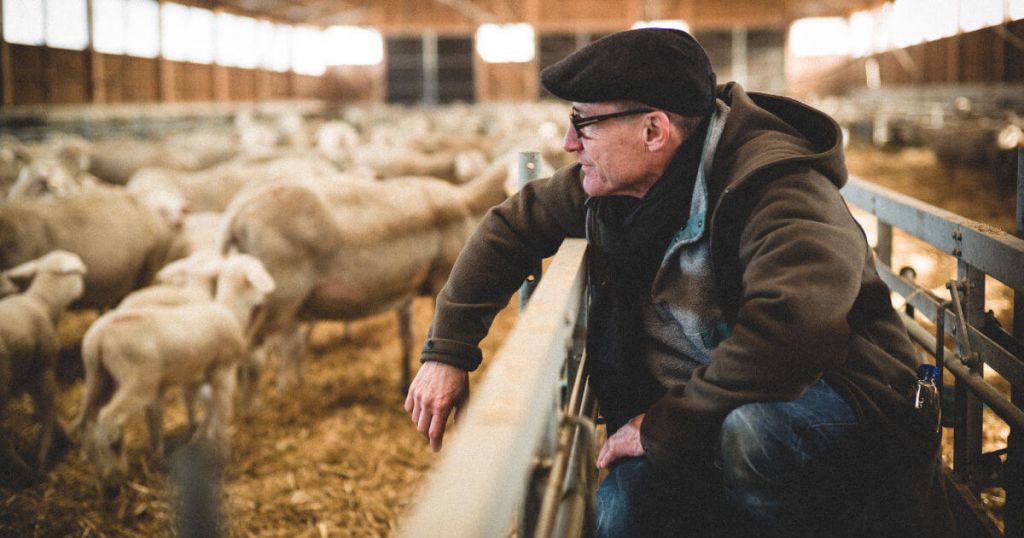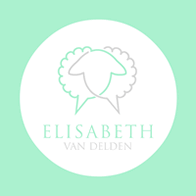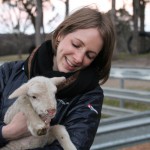#087 Gerhard Schoppel about the premium wool hand knitting yarn business

Gerhard Schoppel is the owner and creative mind behind the premium hand knitting yarn Schoppel Wolle. In this episode he talks about the hand knitting business and why he decided to go premium. Gerhard also shares the journey he went through to source his wool only from Patagonia in Argentina and to have his products GOTS certified.
About Gerhard Schoppel
„Knitting is the answer to the yearning for something true, something for yourself, something of value.“
The Hohenloher Wolle GmbH is a company with a clear position. For more than sixty years the traditional company stands for the manufacturing and processing of hand knitting yarns – Made in Germany. An extensive knowhow on textiles has been acquired over decades, something that today is more valuable than ever. To owner Gerhard
Schoppel, the spirit of creative handiwork is near and dear.
The particular uniqueness of the Schoppel Wolle yarn collections is influenced by the interplay of art and fashion. With the three product lines gradient yarns, sustainably produced yarns made of natural fibres and luxurious yarns (silk, cashmere, linen, alpaca and mohair) the Hohenloher Wolle GmbH delivers its products to international customers, especially to countries with a long knitting tradition.
The raw wool for the whole collection comes from Patagonia and local sheep farms. In a new Schoppel Wolle product line the Hohenloher Wolle GmbH has been certified with the eco-label GOTS. The GOTS-seal (Global Organic Textile Standard) is subject to very strict requirements and criteria throughout the complete production chain.
For Gerhard Schoppel and the Hohenloher Wolle GmbH it is important to say: A clear position never goes out of fashion.
Connect with Schoppel Wolle here
Facebook page
Ravelry page
Key timestamps
[spp-timestamp time=”00:51″] Introduction to Gerhard Schoppel and Schoppel Wolle
[spp-timestamp time=”02:38″] The process of developing new products
[spp-timestamp time=”05:30″] The history of Schoppel Wolle
[spp-timestamp time=”07:17″] How has Schoppel Wolle changed over time?
[spp-timestamp time=”09:55″] The decision of creating a premium product
[spp-timestamp time=”11:01″] The process of joining the family company
[spp-timestamp time=”11:42″] Sustainability at Schoppel Wolle
[spp-timestamp time=”14:27″] Sourcing organic wool from Patagonia
[spp-timestamp time=”19:55″] Sourcing German wool
[spp-timestamp time=”21:42″] What kind of questions do consumers typically ask?
[spp-timestamp time=”22:57″] The typical customer of Schoppel Wolle
[spp-timestamp time=”24:26″] The future of hand knitting
[spp-timestamp time=”25:09″] The reasons for the comeback of hand knitting
[spp-timestamp time=”26:24″] Do hand knitters care about the fibre content of hand knitting yarn?
[spp-timestamp time=”28:31″] The role of social media for selling hand knitting yarn
Other episodes you may enjoy
#004 Peter Ackroyd on how buying wool products is an investment with a return on capital
#025 Jen Hunter is educating consumers by giving them the real farm experience
#046 Janne Strommen about wool’s important role at Devold of Norway
#045 Willy Gallia about growing organic wool in the wilderness of Patagonia
#066 Morten Dilling about selling wool underwear online
#081 Osman Kilic about the hand knitting industry

